#la boheme
Text
Charles Aznavour - La Bohem'i 1966 yılında seslendirmiş. (Ve benim çook sevdiğim parçalardan biridir.)
Bu yorumu da çok beğendim, harika söylüyor😊🤗
💙🥀🕊️
🎼🎵🎶 La Bohème 🎶🎵🎼
💙🥀🕊️ ❤️
(Birbirlerine ilk görüşte aşık olan terzi Mimi ve şair Rodolfo arasındaki dramatik aşkı anlatıyor)




💙🥀🕊️
Günler güz yaprakları gibi___
Birer birer dökülürken ayaklarımın dibine___
Ben her gece karanlığa dikip gözlerimi___
Senin aydınlığını bekledim
____SEN YOKTUN___!!//

81 notes
·
View notes
Text
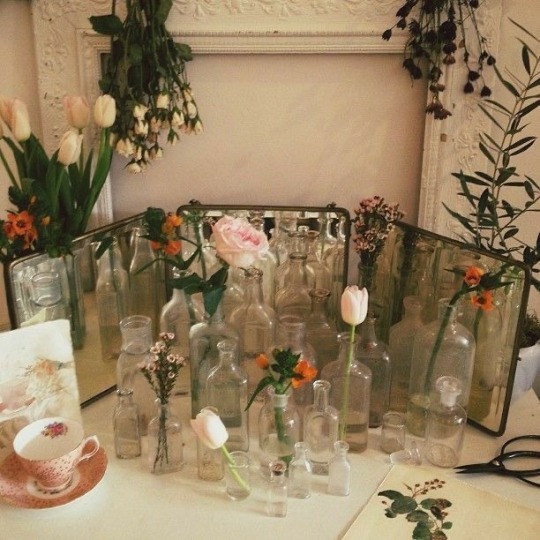



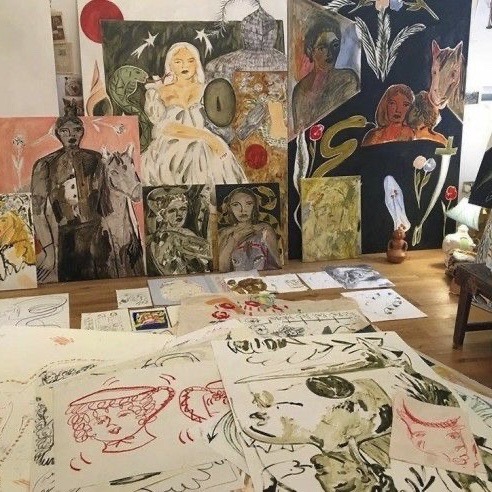

house of an artist , x x
#I get such artist vibes from this#painter#la boheme#very cozy#cottagecore#flowers#flowercore#interior#paintings#art supplies#plants#romantic#soft aesthetic#creative space#cute#fairy aesthetic#angelcore#grandmacore#trinkets#vanity mirror
2K notes
·
View notes
Text
The Top 40 Most Popular Operas, Part 1 (#1 through #10)
A quick guide for newcomers to the genre, with links to online video recordings of complete performances with English subtitles.
Mozart's Die Zauberflöte (The Magic Flute) (Wolfgang Amadeus Mozart)
The most frequently performed opera worldwide: Mozart's fascinating, philosophical fairy tale opera, which appeals to both children and adults.
San Francisco Opera, 2010 (Piotr Beczala, Dina Kuznetsoca, Christopher Maltman, Erika Miklosa, Georg Zeppenfeld; conducted by Donald Runnicles)
Verdi's La Traviata
Tragic romance with social commentary, based on Alexandre Dumas fils' novel The Lady of the Camellias, which was also the basis for the classic 1936 Greta Garbo film Camille.
Los Angeles Opera, 2006 (Renée Fleming, Rolando Villazon, Renato Bruson; conducted by James Conlon)
Bizet's Carmen
The fiery tragedy of a seductive, free-spirited Spanish Romani woman and her loves, with some of opera's most iconic music.
Royal Opera House, Covent Garden, 2006 (Anna Caterina Antonacci, Jonas Kaufmann, Ildebrando d'Arcancelo, Norah Ansellem; conducted by Antonio Pappano)
Puccini's La Bohéme
Relatable slice-of-life romance that blends comedy and tragedy. The inspiration for the popular musical RENT.
Studio film, 1965 (Mirella Freni, Gianni Raimondi, Rolando Panerai, Adriana Martino; conducted by Herbert von Karajan)
Mozart's Le Nozze di Figaro (The Marriage of Figaro)
The best loved of Mozart's Italian operas, a great comedy of class conflict and sexual intrigue.
Glyndebourne Festival Opera, 1994 (Gerald Finley, Alison Hagley, Renée Fleming, Andreas Schmidt, Marie-Ange Todorovich; conducted by Bernard Haitink)
Puccini's Tosca
Political intrigue, lust, and bloodshed amid the splendor of Rome – some call it a "shabby little shocker," others call it thrilling.
Vienna State Opera, 2019 (Sondra Radvanovsky, Piotr Beczala, Thomas Hampson; conducted by Marco Armiliato)
Mozart's Don Giovanni
Arguably the greatest retelling of the legend of Don Juan, with comedy, drama, and Mozart's glorious music.
Salzburg Festival, 1954 (Cesare Siepi, Otto Edelmann, Elisabeth Grümmer, Anton Dermota, Lisa della Casa, Erna Berger, Walter Berry Deszö Ernster; conducted by Wilhelm Furtwängler)
Puccini's Madama Butterfly
Puccini's iconic "Japanese tragedy." Controversial from a racial standpoint, but a tearjerker nonetheless, and the inspiration for the musical Miss Saigon.
Feature film, 1995 (Ying Huang, Richard Troxell, Ning Liang, Richard Cowan; conducted by James Conlon)
Rossini's Il Barbiere di Siviglia (The Barber of Seville)
The lighter and more madcap prequel to The Marriage of Figaro, known as the quintessential comic opera.
Vienna State Opera, 2019 (Rafael Fingerlos, Juan Diego Flórez, Margarita Gritskova, Paolo Rumetz, Sorin Coliban; conducted by Evelino Pidò)
Verdi's Rigoletto
A richly melodic tragedy of a hunchbacked jester, his daughter, a lecherous duke, and a self-fulfilling curse.
Studio film, 1982 (Ingvar Wixell, Luciano Pavarotti, Edita Gruberova; conducted by Riccardo Chailly)
#opera#top 40#part 1#top 10#video#complete performances#english subtitles#die zauberflöte#the magic flute#la traviata#carmen#la boheme#le nozze di figaro#the marriage of figaro#tosca#don giovanni#madama butterfly#il barbiere di siviglia#the barber of seville#rigoletto
104 notes
·
View notes
Text
The Rent Post™
aka, a lengthy screed on how rent the musical goes about adapting la boheme, where it fails, and what can be done about it
so i’m admittedly a reformed Theater Kid™. and tbh i still very much am a Theater Person, even a Musical Theater Person, i’m just in my 20s now and my taste has shifted away from what’s mainstream on broadway right now and closer to the world of opera. but there absolutely was a time in my early teens when i was Really Into Rent, as many Theater Kids™ were…and there was also a time in my later teens when i thought about it and realized that rent was not only just not my thing, but that there were some significant Problems with it, as its own work and as an adaptation. now, having finally seen boheme for myself, i feel like i’m really in a place to piece together how the two works compare to one another, and why/how i think rent falls short of success (as a piece of theater anyway. obviously rent is not lacking in commercial and popular audience success, for better or worse).
i knew years ago that rent is a direct adaptation of la boheme, but wow, only after seeing the opera did i come to realize just how closely rent follows boheme: in plot beats, in character names, even borrowing a couple of lyrics and musical motifs here and there.

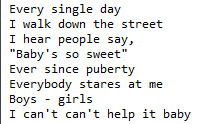
but it also changes things from the original opera -- namely, it adds things -- and i think this is the first place where rent runs into trouble. now i am by no means such a purist that i think no work should ever be adapted unchanged (more on this later...what’s the point of adaptation if not to change things to make the work resonate with a new audience anyway?). however, any and every change made to an existing work in adaptation should be thoughtfully made and motivated, because every single change has an effect on the whole product in some way, and many small changes can add up to create a rather different final product than a creator might realize.
(and this goes both ways, i think -- both in a work where a more flawed source material is adapted into something new and better, and when a superior original work is adapted into a worse new creation.)
definitely some of the changes made in rent while adapting la boheme are due to the change in medium. opera and musicals are both theater, sure, and more similar in many ways to each other than either is to straight play or film perhaps, but it’s still like a spanish speaker and an italian speaker trying to have a conversation with one another. the languages are similar and there might even be a bit of crossover in mutual intelligibility but they are still ultimately two different languages with different grammars and vocabulary. opera in general tends to have slower pacing than book musicals, fewer plot threads of equal importance. that rent is specifically a musical adaptation of la boheme, rather than a true rock opera, demonstrates this well. the mimi/rodolfo relationship is still front and center (americanized of course as mimi and roger), with marcello and musetta close behind (though expanded in rent as more of a love triangle among mark, maureen, and joanne, the latter being an invented character for the musical who i think embodies the original marcello as much as mark does). but rent adds a lot of stage time and focus to a new couple, collins and angel, who are directly lifted from colline and schaunard, who are essentially secondary comic relief characters, whereas collins/angel are arguably as important plot wise to mimi/roger and mark/maureen/joanne.
(and i’m not gonna get into the level of #problematic there is to the depiction of maureen as an overly promiscuous bisexual or discuss why colline and schaunard can’t have been a gay couple the whole time or whatever because. wow i do not care. there are more important things to complain about here c’mon)
first big addition to rent that wasn’t original to boheme is that increased stage presence/focus for collins and angel. it's not inherently a bad addition, and for its time the open depiction of multiple queer romances onstage was still kind of groundbreaking. and yes, rent having a longer runtime than boheme should give it the opportunity to flesh this relationship out more as well as the other two to make sure they all have an equal chance to develop and end in a satisfying way. hell, they don’t even all have to be equal in stage presence/focus/importance to be a positive addition to the show (and how can it be when angel dies halfway through act ii? then again, the character dying doesn’t exactly mean the relationship loses its importance in the plot…) but despite the extra runtime and faster storytelling pace, rent doesn’t actually develop angel and collins all that much, especially not before angel dies. this isn’t an issue with colline and schaunard, of course, cause it’s obvious they’re not important characters in boheme. but collins and angel are arguably more important in rent than even mark/maureen/joanne. and angel dies halfway through act ii…meanwhile, mimi survives the end of rent, when she very pointedly does not in boheme.
and…oh, mimi. she is probably the biggest and most problematic adaptational change in rent as compared to la boheme. on the surface she (and roger/rodolfo) seems the least changed of all the opera’s characters, her name not even undergoing the same americanization treatment as the others. but there are just so many small details that add up and up until she’s a fundamentally different character in rent. i don’t even begrudge the change in occupation: her becoming a stripper/exotic dancer/possible sex worker(?) rather than a seamstress does bring with it some cultural baggage, but i am not personally interested in reading any morality into her choice of occupation, and i choose not to read her line of work as having any implications for her “innocence” or moral value as a character. nor will i read her addiction or disease as being moral qualities either. however: there is a big difference between tuberculosis in the 1840s and both AIDS and drug addiction in the 1980s. neither boheme’s mimi nor rent’s are morally responsible for their illnesses. but there is absolutely nothing mimi could do about her tuberculosis in boheme except die, because it was france in the 1840s and nobody knew what an antibiotic was. in new york in 1989, there were rehab clinics and there were medications for HIV. these things were expensive and hard to access, yes, but rent really goes out of its way to show us that mimi had the resources to access these things -- she is able to afford AZT in act i on her own (and the fact that she’s on AZT is used as shorthand for her HIV+ status, as opposed to other characters about whom we are told outright)...


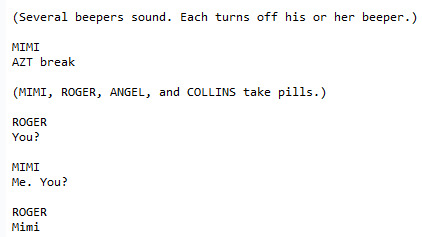
… and her relationship with benny (the much-expanded counterpart to boheme’s benoit the landlord character) in act ii, who verbally offers to pay for her admittance to a rehab program.

yet the next time we see or hear anything of her, her loving mother is calling to ask where she is as she’s presumably gone missing…

…and then discover she has been living on the street, dying from exposure/disease/addiction.
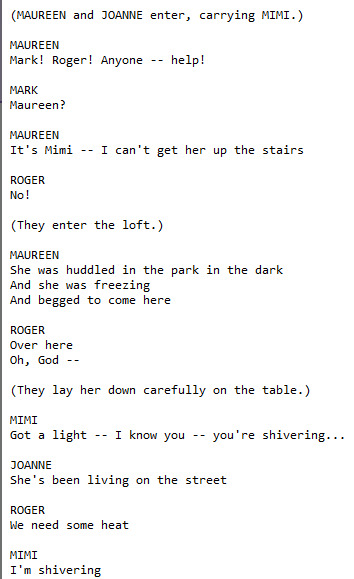
did she do this willingly? did benny refuse to continue supporting her? we don’t really get an answer to any of this; rent isn’t really concerned with why mimi is in the position she’s in, but is rather entirely preoccupied with staying true to boheme -- up until mimi’s death, anyway. because mimi doesn’t die in rent, she is saved, and says that angel told her to keep on living (as though it were a choice). why? we can only speculate. really, if any character embodies the same “dying tragically in a world too cruel for them to survive” theme as mimi in boheme does, it’s angel. and her death is honestly used as a tool throughout the rest of the show: a purpose for kindness, community, life.


is this a bad “bury your gays” kind of thing? i don’t really know, i’m inclined to believe not. but i do think angel’s death is more thematically akin to mimi’s death in boheme than the actual (near-)death of mimi in rent.
and this is the biggest difference between rent and boheme: boheme is not about hope. boheme is a tragic romance about how important relationships are among people in disadvantaged communities/situations, but it does not say that love will transcend or materially improve those conditions. rent, by contrast, does. rent suggests that the love of partners and community (even if filled with complications and tensions) is lifesaving.
(and i know rent’s stated thesis is “no day but today,” i.e. live and enjoy every day as though it could be your last, but i think thematically all the characters and their interactions overall suggest a theme of community just as if not more strongly, whereas “no day but today” is more limited to the HIV+ characters and has little to do with the mark/maureen/joanne subplot. mimi's outlook on "no day but today" changes when she chooses to stay alive on the urging of angel from the other side.)
now i don’t think this is altogether a bad moral to have in your theater piece. especially in one of the first major pieces of theater centered on marginalized queer characters. i will not deny how important and cathartic it can be, both now and especially thirty years ago when rent premiered, to end on a hopeful note rather than a tragic one. but i have a couple of issues with how rent goes about making this its central theme. for one thing, mimi has frankly too many Things affecting her health in the end for her survival to be realistic, and absolutely nothing up to this point in the show has suggested a setting of magical realism or pseudofantasy; everything has been as grounded in real life as possible, until finale b, when mimi suddenly and near-inexplicably survives. it feels like it comes out of nowhere tonally and thus isn’t very satisfying an ending when put to scrutiny. for another, angel has already died, and angel is, compared to mimi, a much more beloved and uncomplicatedly positive force in their community and relationships. angel’s entire stage presence (while she’s alive and when her character is invoked or referenced after her death) is a positive one: caring for collins when he’s injured, providing food and funds to the group, placating arguments, etc.
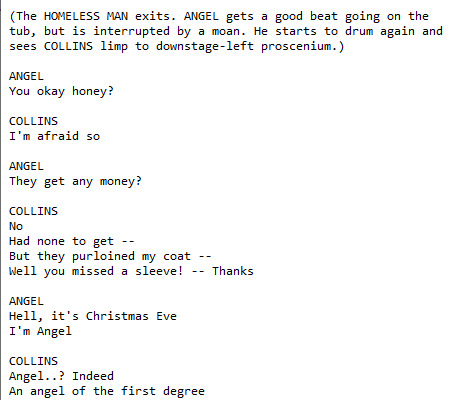

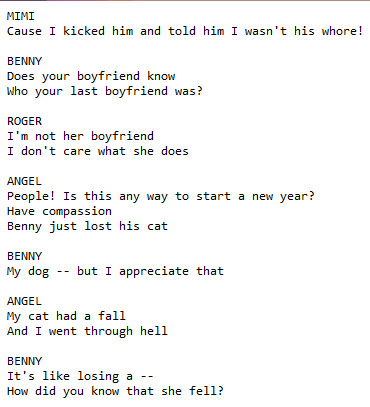
and the fact that angel has no concerned parents leaving her voicemails, unlike mark, roger, and mimi, underscores that she has no one else to lean on for support except her community of bohemians. and we’re not given a reason to believe one way or the other about her home life or financial stability outside of today 4 u when she got a sudden windfall for killing a dog (whatever; schaunard did the same thing to the parrot in boheme). in contrast to mimi, roger, and especially mark, who are clearly shown to have family who care about them and want to support them, yet they choose to live in romanticized poverty anyway. mark even gets a good job in filming and still finds a way to complain about it.
really, except for angel (and arguably collins, too), it’s difficult to totally sympathize with the characters in rent and care fully about their plight because they’re just…not depicted as particularly likable people. maureen is an unfaithful and kind of manipulative partner, and her approach to “protest” is really just bad self-absorbed performance art. roger just kind of sucks at songwriting (how is your eyes the song that he’s spent the whole show writing? it’s the worst number in the musical lol), and he’s quick to anger…his decision to leave mimi makes even less sense here than rodolfo’s decision to leave her in boheme, where at least he did so out of genuine concern for her health (also why does he leave mark? rodolfo embraces marcello as a friend still after mimi leaves in boheme...act iii of boheme is the least closely adapted in rent by far.). wheras in rent roger seems to be both genuinely jealous of mimi interacting with other men and upset by her continued drug use. although this last one i don’t begrudge him for, since it’s made clear he’s a recovering addict himself…although it does make mimi’s relationship with him all the worse, considering that mimi’s take on the whole “no day but today” theme is to throw caution to the wind with her actions and not worry about the future at all, and her interacting with roger is directly tempting him back into addiction which he clearly does not want. (and roger’s rejection of her in another day is framed as him being in the wrong with mimi being backed up by the life support chorus…)

while mimi as we’ve seen is reckless and throws her life away even when people try to help her (very very different from boheme’s mimi, who makes no particularly reckless choices, and accepts help when it's offered). and mark is entitled and uses his film as an excuse to disengage with the real world, even exploit it (see: the way he films the life support meeting without permission, or the homeless woman, which is never really confronted elsewhere in the show…)

the inclusion of a homelessness subplot in rent is particularly strange to me. it shows up a lot, especially in act i: the threat of homelessness for the main characters should they not pay their rent or come to some kind of agreement with their landlord; the vague future threat of benny’s “cyberarts studio” getting built which is implied would evict those living in tents on the lot; mimi being found living on the street in the finale; and the chorus/ensemble who show up periodically, as above. homelessness is an ever present element of set dressing/conflict in rent but it’s never really addressed, no points are ever made about it, which is in my opinion kind of wild and very unsatisfying. the above scene especially, considering how direct of a callout it is towards the show’s own characters and writing, yet it is never addressed afterwards, and this conflict is never really resolved.
one could take similar issue with the choice to swap tuberculosis in boheme with AIDS in rent. though in my opinion i think addiction is as much as if not more rent’s analogue to boheme’s TB, since that is a much more acutely seen disease for mimi and only mimi while there are multiple characters (main and chorus) living with HIV…then again, angel is the character who gets the real tragic death analogous to mimi’s in boheme, and angel dies of complications from AIDS, so i suppose it’s open to debate. regardless, there’s a significant contextual difference between TB in the 1840s and HIV and addiction in the 1980s: there was no system, political, social, or medical, that could truly heal someone of tuberculosis in boheme’s setting. but there very much was a medical and social system in place to help people with HIV and addiction in the 1980s; systems which were aggressively denied to those who were suffering by the political system. and for as much as the characters in rent like to sing about revolution, protest, and activism, not a single one actually challenges the powers that be or call out by name those responsible for the systematic denial of healthcare to the marginalized. activism and artistic revolution is hollow and meaningless in rent, they never name a real enemy, just a vague sense of “the man.” but it’s a story set in a real and still recent historical time period, the effects of which we still deal with today (and i’m sure even more acutely so back in 1996); it just feels disrespectful to me to use those crises as such important set dressing for your musical which positions itself as a “fuck the man” revolutionary kind of piece of theater and yet do or say absolutely nothing about the real world issues it is appropriating. for more information i highly recommend checking out lindsay ellis’ video on the topic.
so is all this to say i think rent is an irredeemable, fundamentally broken work? actually, no; i think it has a decent foundation and some solid music. i understand the reasoning behind and appeal of updating an old work to a new time period/setting for a new audience, and i think trading 1840s paris for 1980s nyc is an interesting and workable substitution. but when i look at rent as it is now, i just do not see a finished product.
and i think this is the most frustrating and disappointing thing about rent to me: rent is, quite literally, an unfinished show. its composer and librettist, jonathan larson, died suddenly the day of its first preview performance. and for so many developing (off-)broadway shows, previews are when the actual finished product is crafted, as the show is revised based on audience reactions. of course audience and critical reception to rent from the very beginning was positive, but i can’t help but speculate how much of that is influenced by the mere fact of its creator’s untimely death. and i wonder what changes larson would have made to his show if he had lived, and been able to hear the audience’s reactions, and revise the show accordingly. i wonder if he would have thought it worked. i wonder if he would have seen the same cracks that i see in it. i don’t think rent is inherently unsalvageable, but it is so far unsalvaged.
and frankly i don’t know that it ever will be salvaged; not for many years, at least. not until copyright and licensing in musical theater changes, and not until broadway audiences get more comfortable with the idea of altering beloved and familiar classics (the 2019 revival of oklahoma! was, in my opinion, a work of genius, but i’m well aware my opinion is not universal, and especially during its national tour the show’s entire concept has been extremely controversial). do to rent what bartlett sher and aaron sorkin are doing to camelot right now: keep the heart and soul of the piece intact, but rewrite what doesn’t work. or do something even more drastic, cut subplots and change character traits, i don’t know. maybe mimi should die; maybe it really is important that she survive! maybe rent shouldn’t have been based on boheme at all; hell, what would rent look like if it was based on la traviata instead? (well the answer to this one is “a different show entirely,” most likely, but if you want to write a poignant and tragic love story based on a romantic opera and set in 1980s nyc featuring queer and/or HIV+ characters, well…it could work and i’ll leave it there.) maybe that’s going too far, i don’t know, but the point is, i want to see directors and writers have the freedom to try that stuff out. because i don’t think rent is unsalvageable; i think it’s unfinished.
but rent is far too popular and beloved for anyone to dare touch its libretto with new ink. the memory of jonathan larson is held far too preciously for anyone to allow such debasement of his work. when searching online for libretti to reference when writing this essay, i found one transcribed script with this at its heading:

and i think that about sums it up for me. “may he be friggen worshiped!” him and all his creations, holy and untouchable. it’d be tantamount to theater sacrilege at this point to try and change it. how dare you sully larson’s good name by thinking you could “fix” his masterpiece…the masterpiece no one wants to admit he never got to actually finish. well, i don’t know, maybe it’s me being jewish and sentimental here, but if i have enough respect for a piece of work i want to be able to engage with it and question it and interpret it as i think it best ought to be. (jonathan larson was also jewish. would he agree with me? i don’t know. but i think he’d want to see the best of his work, just like i do.) live theater is inherently participatory and dialectical. and it ought to be alive, not carved into stone. neither immovable nor under threat of utter annihilation should someone come too close with a chisel. rent has potential. la boheme is still as affecting today as it was a hundred thirty years ago (did you know rent premiered almost exactly a hundred years after la boheme?). rent could be the same. and it does have emotionality behind it as it is now, credit where credit’s due. but it could be more than just that. if we could just let someone finish the thing already, even if larson himself couldn’t.
#sasha reviews#rent#<- afraid of putting this in the tag. rent fans please be cool. just scroll past this if you don't wanna see me being critical ;;#la boheme#this took so long to write. please enjoy#tldr; rent isn't irredeemable or unworkable but it is unfinished#i think it ought to either just let itself be closer to boheme (the 'keep it simple stupid' approach)#or let itself stray from that source material more and give each of its subplots the full attention it deserves (and needs)#(and maybe cut one or two of them...)#and be more of its own thing already#i don't know. who knows what would work best? no one does. cause no one's tried it yet. that's the bottom line i guess
72 notes
·
View notes
Text
#opera#puccini#verdi#mozart#cherubini#classical music#operas#operablr#tosca#la boheme#falstaff#the magic flute#medea#rossini#the barber of seville#the marriage of figaro#cosi fan tutte
145 notes
·
View notes
Text
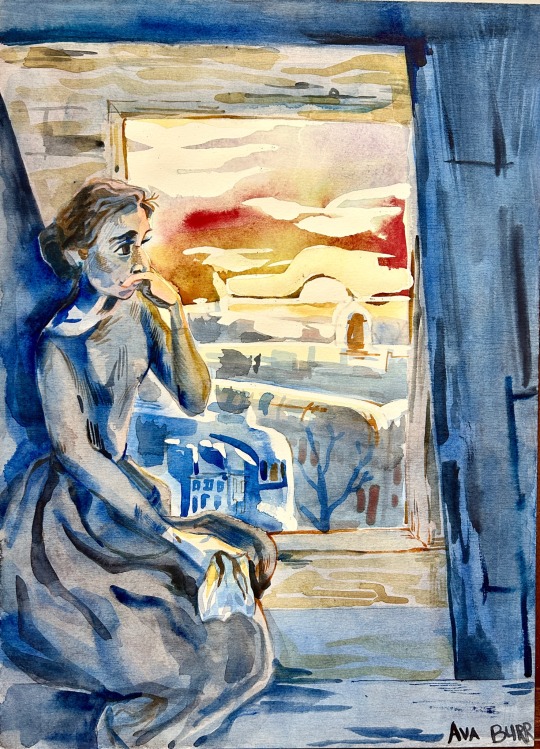
12 notes
·
View notes
Text
WAIT WAS NO ONE GOING TO TELL ME THAT RENT THE MUSICAL IS INSPIRED BY LA BOHEME???
guess my procrastination to watching it has come to an end
13 notes
·
View notes
Text
Mimì @ Rodolfo: I love resting my head on your chest and hearing your heart beat as I drift off to sleep.
Musetta @ Marcello: I recorded you snoring so you can hear how fucking loud it is.
#source: twitter#opera#opera shitpost#opera shitposts#incorrect opera quotes#la bohème#la boheme#puccini#giacomo puccini#mimì#mimi#rodolfo#musetta#marcello#posting here bc incorrectoperaquotes blog seems currently inactive#i know this meme is old but who cares
44 notes
·
View notes
Text

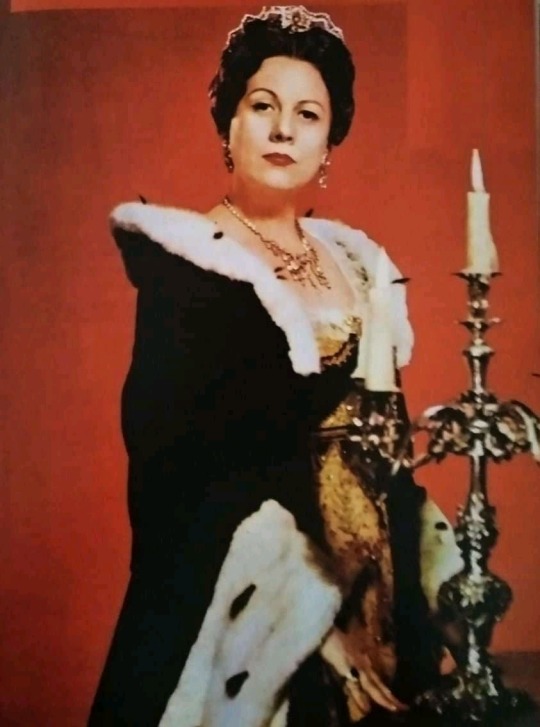







Renata Tebaldi
#renata tebaldi#puccini#ettore bastianini#tosca#la fanciulla del west#madama butterfly#iloveopera#la boheme
10 notes
·
View notes
Text
well la boheme is a lot like old yeller when you think about it. You figure this post out for yourself
9 notes
·
View notes
Photo
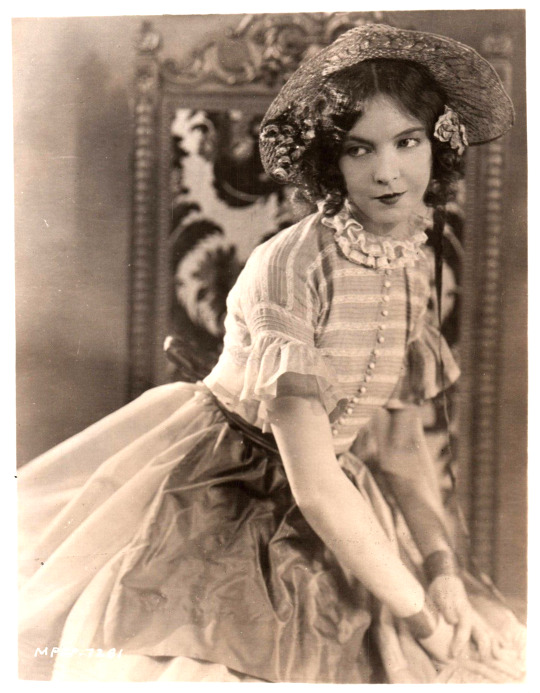
Lillian Gish promotional for King Vidor's ''La Boheme'' MGM (Mimi)
37 notes
·
View notes
Photo

A maintenance worker puts up posters at the old Metropolitan Opera House, ca. 1947.
Photo: Earl Leaf via the Michael Ochs Archives/Getty Images
#New York#NYC#vintage New York#1940s#Earl Leaf#Metropolitan Opera#posters#opera#Barber of Seville#La Boheme
174 notes
·
View notes
Video
youtube
David Hobson - “Che gelida manina” | La bohème | Sydney Opera House, Aus...
#david hobson#la boheme#che gelida manina#rodolfo#this my friends is just#chef's kiss#this whole darn production was just stellar#and thanks to Haven#for causing this david hobson meltdown
3 notes
·
View notes
Note
Where do you watch operas?
There are plenty of complete filmed opera performances available on YouTube, which you can watch for free. Unfortunately, not all of them have English subtitles, but if necessary, you can always find a translation of the libretto online to follow along with.
In fact, just for fun, as an example, I'll provide some links to complete filmed performances of the world's top 10 most popular operas, with English subtitles.
Die Zauberflöte (The Magic Flute)
Studio film, 1971 (Nicolai Gedda, Edith Mathis, William Workman, Christina Deutekom, Hans Sotin; directed by Sir Peter Ustinov; conducted by Horst Stein)
La Traviata
Studio film, 1968 (Anna Moffo, Franco Bonisolli, Gino Bechi; directed by Mario Lanfranchi; conducted by Giuseppe Patané)
Carmen
Royal Opera House, Covent Garden, 2006 (Anna Caterina Antonacci, Jonas Kaufmann, Ildebrando d'Arcangelo, Norah Ansellem; staged by Francesca Zambello; conducted by Antonio Pappano)
La Bohéme
Studio film, 1965 (Mirella Freni, Gianni Raimondi, Rolando Panerai, Adriana Martino; directed by Franco Zeffirelli; conducted by Herbert von Karajan)
Le Nozze di Figaro (The Marriage of Figaro)
Teatro alla Scala, 2006 (Ildebrando d'Arcangelo, Diana Damrau, Marcella Orsatti Talamanca, Pietro Spagnoli, Monica Bacelli; staged by Giorgio Strehler; conducted by Gérard Korsten)
Tosca
Teatro Real de Madrid, 2004 (Daniela Dessí, Fabio Armiliato, Ruggero Raimondi; staged by Nuria Espert; conducted by Maurizio Benini)
Madama Butterfly
Theatrical film, 1995 (Ying Huang, Richard Troxell, Ning Liang, Richard Cowan; directed by Frédéric Mitterand; conducted by James Conlon)
Don Giovanni
Zurich Opera, 2001 (Rodney Gilfry, László Polgár, Isabel Rey, Cecilia Bartoli, Liliana Nikiteanu, Roberto Saccá, Oliver Wimer, Matti Salminen; staged by Jürgen Flimm; conducted by Nikolaus Harnoncourt)
Il Barbiere di Siviglia (The Barber of Seville)
Metropolitan Opera, 2007 (Peter Mattei, Juan Diego Florez, Joyce diDonato, John Del Carlo, John Relyea; staged by Bartlett Sher; conducted by Maurizio Benini)
Act I, Act II
Rigoletto
Studio film, 1982 (Ingvar Wixell, Luciano Pavarotti, Edita Gruberova; directed by Jean-Pierre Ponnelle; conducted by Riccardo Chailly)
#opera#complete performance#die zauberflöte#the magic flute#la traviata#carmen#la boheme#le nozze di figaro#the marriage of figaro#tosca#madama butterfly#don giovanni#il barbiere di siviglia#the barber of seville#rigoletto#english subtitles#youtube
368 notes
·
View notes
Text



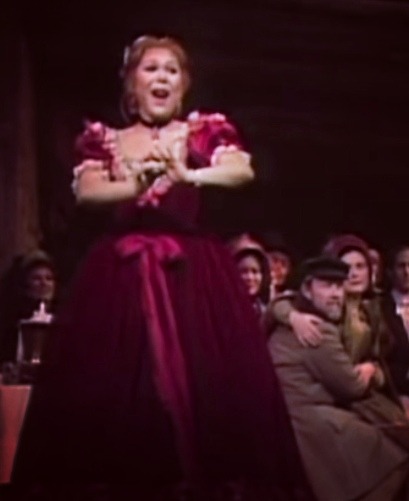
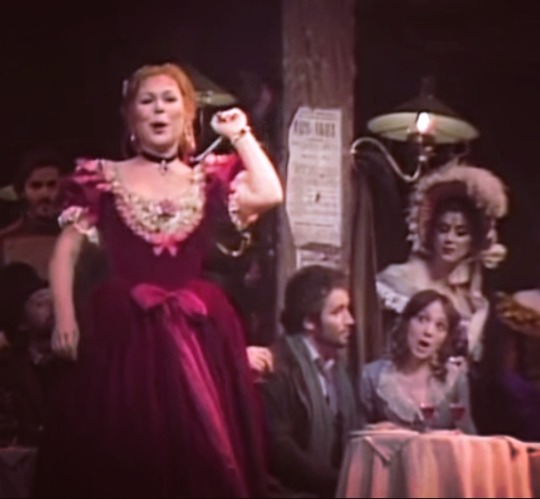





Renata Scotto as Musetta in PUCCINI's *La Boheme*, singing "Quando m'en vo" (Musetta's Waltz); Metropolitan Opera House NY, 1982
9 notes
·
View notes
Text

Seen in 2023:
La Vie de Boheme (Aki Kaurismaki), 1992
#films#movies#stills#La Vie de Boheme#The Bohemian Life#Aki Kaurismaki#Matti Pellonpaa#Finnish#1990s#La Boheme#adaptations#seen in 2023
7 notes
·
View notes